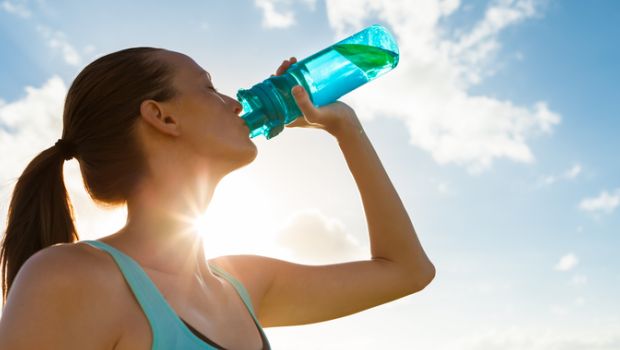When FDA banned the use of BPA in baby bottles 5 years ago, the chemical was replaced by another chemical, and BPA-free products were flooded all over the market. But BPA-free bottles are equally harmful, studies show.

BPA-free bottles are as harmful as BPA bottles
HIGHLIGHTS
- BPA is a chemical which is added to products like containers and bottles
- BPA-free products had BPS as a replacement chemical
- One can switch to glass, steel or ceramic bottles for safe consumption
We all consider Bisphenol A-free (BPA) water bottles as safe and got them as a replacement to Styrofoam and other plastic bottles. It was around 5 years ago, that the Food and Drug Administration (FDA) banned the sale of baby bottles that had BPA, a chemical that works like estrogen. And ever since, bottles labelled BPA-free have been flooded in markets all around the world. However, researches have now shown that the chemical which replaced BPA could be equally harmful.
About BPA
BPA is a chemical which is added to many products including clear polycarbonate plastics, carbonless paper receipts, eyeglasses, computer and cell phone cases, cell phone covers, water and beverage bottles, food containers, hygiene products and baby product bottles previously. It is also used in the materials which go inside of cans, so as to protect them from getting damaged.
Harmful effects of BPA
Studies show that hormone-disrupting chemical in BPA can be harmful to almost all parts of the body. It mimics estrogen and can cause possible harms to the brain, foetus, infants and children. It can also increase risk of breast cancer cell growth and decrease sperm count.
A Japanese study had stated that women who have repeated miscarriages have about three times more BPA in the blood as compared to women with successful pregnancies. Other studies have stated that high levels of BPA can cause problems in conceiving.
BPA-free alternatives are equally harmful
Bisphenol S compound was used to replace BPA in various products. BPS was considered to be more resistant to leaching. But studies published in Oxford Academic have stated that BPS is as harmful as BPA. BPS tends to have a negative impact on the embryos and the thyroid hormone system.
Furthermore, both affect neurodevelopment, which includes intellectual functioning, reading ability, social skills, memory and focussing skills.
How to deal with harmful effects of BPA?
- People must always try to consume probiotic-rich food, which comprises good bacteria that can be helpful in strengthening the guts and breaking down chemicals like BPA.
- Some researchers have said that sweating can be helpful in triggering releases of BPA through the skin, since it eliminates toxins from the body.
- The easiest way to get rid of BPA is by using filtered water. Plastic water bottles should be replaced with glass, steel or ceramic bottles.
- Cut down on the intake of canned food and even foods which come in glass jar lids.
- You can store food and water in ceramic or glass containers.
DoctorNDTV is the one stop site for all your health needs providing the most credible health information, health news and tips with expert advice on healthy living, diet plans, informative videos etc. You can get the most relevant and accurate info you need about health problems like diabetes, cancer, pregnancy, HIV and AIDS, weight loss and many other lifestyle diseases. We have a panel of over 350 experts who help us develop content by giving their valuable inputs and bringing to us the latest in the world of healthcare.














